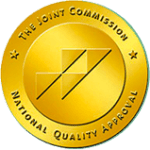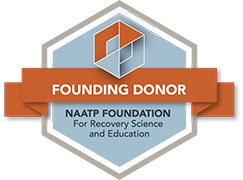How Do You Overcome Fear of Change in Addiction Recovery?
Change can be scary for anyone. You don’t quite know what to expect. You may face new problems you don’t know how to deal with. Your life might get worse. Fear of change is especially scary for someone considering getting treatment for addiction. Addiction is often characterized by set patterns and rigid behavior. People with substance use disorders spend their days doing the same things with the same people. Even if they’re pretty miserable, they know what to expect and how to deal with the problems they’re likely to encounter. Getting treatment for addiction opens up a whole world of possibilities, but this can be terrifying. Not only are there new challenges, but there are also new responsibilities and expectations. It’s normal that someone considering treatment for addiction will feel ambivalent about making a change, even one they expect to be positive.
Imagine the worst that can happen if you make the change.
When we fear uncertainty, we typically fear a faceless monster rather than any specific risk. If you think through what might actually happen if you try to change, you can measure your fear against a range of relatively concrete possibilities instead of menacing uncertainty. For example a short list of treatment-related fears might include a painful detox, awkward therapy sessions, living among strangers, and relapsing shortly after treatment.
Imagine the best that can happen if you don’t change.
On the other hand, imagine what might happen if you don’t change. If you’ve struggled with addiction and now you’re considering treatment, there is probably a good reason. Maybe you’ve had a brush with the law. Maybe your family is ready to cut you off. Maybe you nearly died of an overdose. You can be sure that if you keep going down the same road, you’ll have more of the same challenges.
Think about how the change relates to your values.
There’s a popular form of therapy called acceptance and commitment therapy, or ACT. One feature of ACT that makes it different from other forms of behavioral therapy is that values play an important role in changing behavior. Instead of trying to banish fear entirely, you instead consider your decision in terms of your most deeply held values. The idea is that you don’t eliminate fear, but rather find something that motivates you more than your fear holds you back. For example, if you value your family very highly, but your addiction has forced you to repeatedly put your true needs second, you can use that motivation to overcome your resistance to change. Getting help is no longer something you try to do for others; it’s something you do genuinely for yourself.
Reframe fear as excitement.
Physiologically, fear and excitement are indistinguishable. You get an adrenaline surge, your heart rate increases, and you get more alert. The only difference is how you interpret these physiological signals. If you’re only focused on what can go wrong if you do make a change, then you interpret what’s going on in your body as fear. If, instead, you focus on all the ways the change might improve your life, you interpret those same physiological signals as excitement. We’re hardwired to be more sensitive to threats, so you have to remind yourself to focus on the good possibilities. This might take some practice. Start by acknowledging what you feel–the constricted breathing, the sweaty palms, and whatever else. Accept that you feel some fear about the possible change. Then, remind yourself that many good things can come from the change, and almost certainly more good things than bad. Don’t try to push out the fear; just pay more attention to the excitement.
Remember, you’ll face harder decisions.
On the merits, getting help for addiction is one of the easiest decisions you’ll ever have to make. Addiction always makes life worse and it’s usually a signal of other issues that need to be addressed. Getting some kind of help is clearly the right thing to do, even if it’s scary. Other decisions like whether to move to a different city or whether to divorce your spouse are much more complicated and you may never know if you made the right choice. If you’re considering getting help for addiction, take some comfort in the fact that it will probably turn out to be the best change you made in your life, assuming you can find the courage to follow through.
Established in 1939, High Watch is the world’s first 12-Step treatment center. Every individual who walks through our doors joins a definitive culture of compassion, dignity, and respect from a genuinely caring staff dedicated to seeing the disease of addiction find remission. Providing proven therapeutic approaches and comprehensive 12-Step education, patients leave High Watch with the confidence to maintain abstinence and live a healthy, happy, sober life. Start your journey today by calling 860.927.3772.








